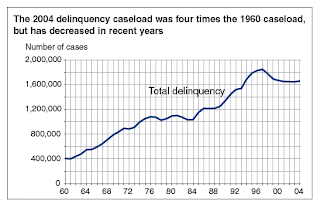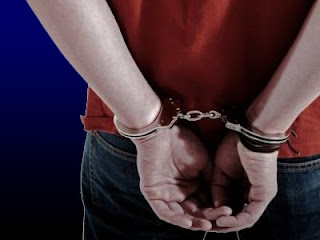Griffin, Brenda S., and Charles T. Griffin. "Juvenile Delinquency."Encyclopedia Americana.
2010. Grolier Online. 27 Sept. 2010 <http://ea.grolier.com/article?id=0226690-00>.
2010. Grolier Online. 27 Sept. 2010 <http://ea.grolier.com/article?id=0226690-00>.
· “Juvenile Delinquency. The term was coined in 1818 by the Society for the Prevention of Pauperism and initially was used to describe the disapproved activities of neglected immigrant children who roamed the streets of New York City.”
· In 1899, the first juvenile court was in Illinois.
· Anyone minor that does the crime is considered a delinquent. It doesn’t matter what their background is.
· “The unstable family, drug abuse, failure of schools, violence in the mass media, and the weakening of religious bonds all has had popular support as explanations for delinquency.”
· “The network of agencies that identify, classify, and treat juveniles in trouble is known as the juvenile justice system.”
· Parts of the juvenile justice system include law enforcement, detention, correctional, juvenile court, and aftercare agencies.
· One third of all the juvenile cases in the United States came under investigation.
· At court, if the evidence proves that the defendant is guilty, it is called “found delinquent”.
· There is a separate hearing to determine what the consequences are, if the minor is found delinquent.
· “The most promising prevention and control programs have been characterized by intense neighborhood or community involvement.”
· “The resources of the community must be mobilized to accomplish the threefold goal of prevention, treatment, and control.”
 |
| http://thecrimereport.org/topics/juvenile-justice/juvenile-courts/ |








